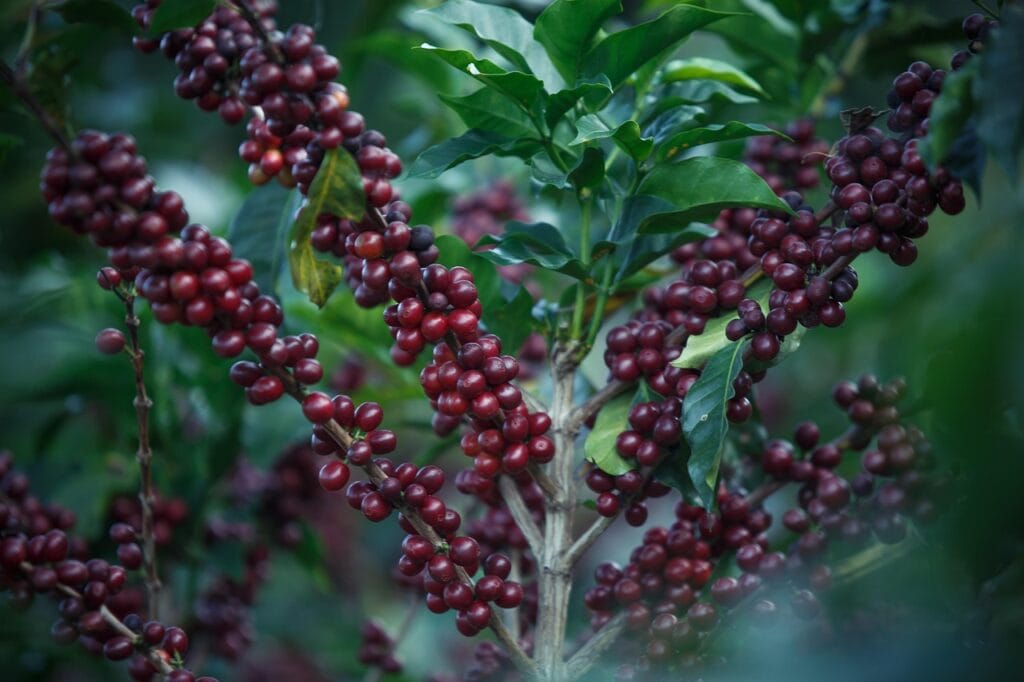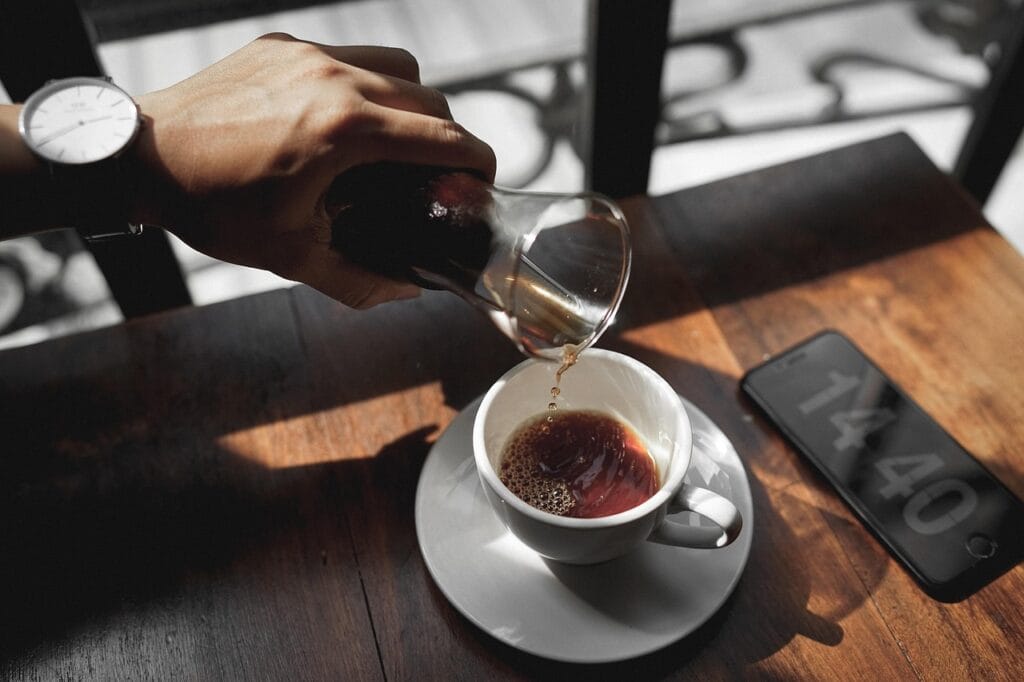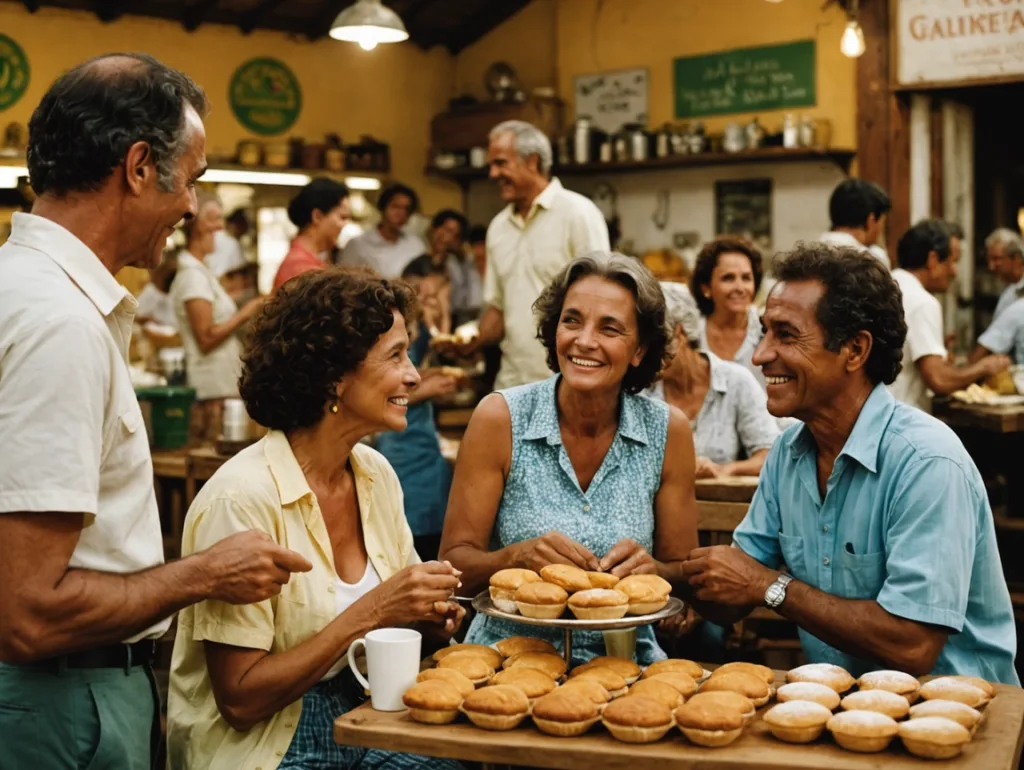If you’ve ever wondered what truly beats at the heart of Brazilian culture, the answer might be right before your eyes, steaming in a small cup. Coffee in Brazil isn’t just a morning drink or a social habit – it’s a fundamental element that connects generations, defines moments of the day, and represents one of the nation’s greatest passions.
To understand the importance of coffee for Brazilians, imagine a morning without that unmistakable aroma filling the house, or an afternoon without the sacred pause for a “cafezinho.” It would be like trying to understand Brazil without samba, without football, or without the natural warmth of Brazilian people. Coffee transcends its basic function and becomes a ritual, a language of affection, and a symbol of hospitality that defines much of who we are.
The Deep Roots of Coffee in Brazilian Culture
A History of Centuries

The relationship between Brazil and coffee began in the 18th century, but it was in the 19th century that this passion truly flourished. Brazilian coffee didn’t just fuel the country economically, but also shaped our cultural identity in ways that few foreigners can imagine.
Unlike other nations where coffee is seen primarily as fuel for productivity, in Brazil it represents pause, conversation, and human connection. In the coffee farms of São Paulo, Minas Gerais, and Espírito Santo interior, you can still feel how this tradition remains alive through generations of producers who treat each bean with the respect of those who know its cultural importance.
Cafezinho: More Than a Drink, a Gesture of Affection
When a Brazilian offers you a “cafezinho,” they’re offering much more than a simple beverage. It’s a gesture of welcome, an invitation to conversation, a way of showing care and attention. This small word, lovingly diminutive, carries within itself the entire essence of Brazilian hospitality.
In offices throughout the country, the coffee break isn’t seen as wasted time, but as an essential moment to strengthen bonds between colleagues. In Brazilian homes, coffee is always ready, hot, and available for any unexpected visitor. It’s an unwritten rule of hospitality: always offer coffee to whoever arrives.
The Daily Ritual That Unites the Country
From Dawn to Dusk
The importance of coffee for Brazilians manifests in multiple moments of the day, each with its particularities and meanings. The Brazilian “café da manhã” (breakfast) literally takes this name – the first meal of the day is named in honor of the beverage that accompanies it.
But anyone who thinks the relationship ends in the morning is mistaken. Post-lunch coffee, known as “café após o almoço,” is almost mandatory in restaurants and family homes. It’s a moment of digestion, extended conversation, finalizing negotiations, or simply enjoying the company of those at the table.
Coffee as a Social Thermometer

In Brazil, refusing coffee can be interpreted in very specific ways. Accepting the cafezinho means accepting hospitality, showing respect for the house that receives you, and demonstrating interest in the conversation that will follow. It’s a subtle but fundamental social dance for understanding Brazilian interactions.
Regional Types and Traditions
Each Brazilian region has developed its own relationship with coffee. In Rio de Janeiro, the “pingado” (coffee with milk) reigns supreme in bars and bakeries. In São Paulo, strong espresso is consumed quickly at bar counters, accompanied by rapid but intense conversations about football, politics, or business.
In Minas Gerais, birthplace of some of the world’s best coffees, tradition remains closer to its roots: freshly filtered coffee, served in porcelain cups, accompanied by pão de açúcar, Minas cheese, and long conversations on the porch.
Coffee as a Language of Affection
Expressions and Meanings
Brazilian Portuguese is full of expressions involving coffee, demonstrating how this beverage permeates our way of thinking and expressing ourselves. “Shall we have coffee?” rarely means just drinking coffee – it’s an invitation to talk, to connect, to share a moment.
“Quick coffee” might mean a brief encounter, while “let’s have proper coffee” suggests a longer, more meaningful conversation. These linguistic nuances reveal how coffee in Brazil functions as its own language, intuitively understood by all Brazilians.
Coffee in Special Moments
On special occasions, coffee gains even more relevance. At wakes, coffee is offered as comfort and companionship in sorrow. In celebrations, it accompanies sweets and joyful conversations. In business meetings, it seals deals and demonstrates serious intentions.
Festa Junina, birthdays, weddings – in practically all Brazilian celebrations, you’ll find a table dedicated to coffee, carefully prepared with different options, sugar, sweetener, and, of course, milk heated to the perfect temperature.
The Emotional Economy of Coffee
Far Beyond Numbers
Although Brazil is the world’s largest coffee producer, exporting to more than 80 countries, the importance of coffee for Brazilians goes far beyond economic aspects. There’s an emotional economy of coffee that sustains relationships, builds communities, and keeps traditions alive.

In small interior towns, the local “casa de café” or roastery isn’t just a commercial establishment, but a social center where news is shared, friendships are cultivated, and community identity is reinforced through the familiar aroma of beans being roasted.
Coffee and Brazilian Identity in the World
When Brazilians travel abroad, one of the most cited things they miss is “Brazilian coffee.” Not just for the taste, but for the entire ritual that surrounds it. Instant coffee or automatic machines from other countries, however convenient, cannot reproduce the complete experience of Brazilian cafezinho.
Traditions That Resist Time
The Cloth Filter and Other Rituals
Despite modernization and the arrival of sophisticated machines, many Brazilians maintain centuries-old traditions in coffee preparation. The cloth filter, passed from generation to generation, continues to be the preferred method in many Brazilian homes.
There’s a specific ritual: heat water without letting it boil, wet the grounds evenly, wait the right time for the coffee to “descend” perfectly. Each family has its secrets and particularities, transmitted orally like sacred recipes.
Coffee and New Generations
Even with the global influence of international coffee chains, new generations of Brazilians maintain a special relationship with traditional Brazilian coffee. Cafeterias specializing in Brazilian gourmet coffee proliferate in major cities, combining tradition with modern preparation techniques.

Young Brazilians rediscover regional flavors, value bean origins, and create a new coffee culture that honors the past while embracing innovation. It’s a natural evolution of a passion that reinvents itself but never abandons its roots.
Coffee as a Cultural Bridge
Receiving Foreigners
For those visiting Brazil, understanding the importance of coffee for Brazilians is essential for an authentic cultural experience. Accepting the offered cafezinho, complimenting the flavor, asking about the coffee’s origin – these simple gestures open doors to genuine connections with Brazilians.
Don’t be surprised if, upon accepting coffee, you find yourself involved in conversations lasting hours, learning family stories, receiving tips on places to visit, or even being invited for lunch. Brazilian coffee functions as a magic key that opens hearts and homes.
A Complete Sensory Experience
Coffee in Brazil is an experience that involves all senses. The aroma that awakens in the morning, the sound of boiling water, the creamy texture of well-prepared coffee, the perfect temperature that warms but doesn’t burn, the flavor that varies according to region and preparation method.
For Brazilians, each of these elements is important and contributes to a moment that goes far beyond the simple act of drinking a caffeinated beverage. It’s a ritual of connection with oneself, with others, and with a tradition that defines a significant part of our national identity.
The importance of coffee for Brazilians lies precisely in this capacity to transform a simple act into a meaningful moment, a beverage into a symbol of hospitality, and a few minutes of the day into precious opportunities for human connection. This is what makes Brazilian coffee much more than a drink – it’s a way of living, of welcoming, and of being Brazilian.
Meta Description: Discover why coffee is more than just a beverage in Brazil. Explore the deep cultural significance of cafezinho in Brazilian daily life, traditions, and hospitality.
Tags: Brazilian coffee culture, cafezinho tradition, Brazilian hospitality, coffee rituals Brazil, South American culture





